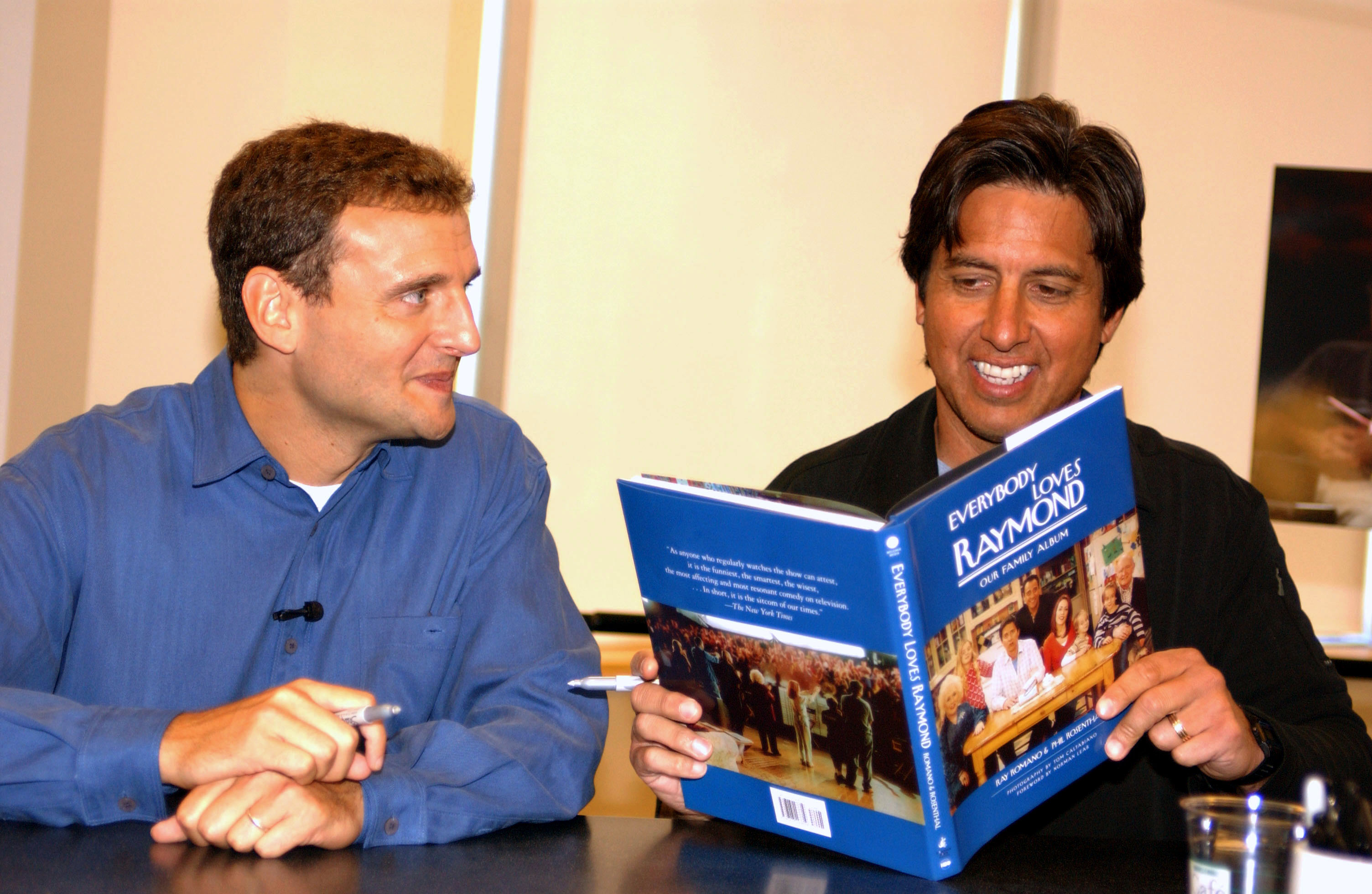Why ‘Everybody Loves Raymond’s Executive Producer Said Writing the Show Was ‘Therapy’ For Him

When Phil Rosenthal was tapped to become showrunner for Everybody Loves Raymond, he wasn’t prepared for how the series would serve as a vehicle for him to vent and express his frustrations about married life.
And its joys; but mostly, its frustrations.
Here’s what he told the Archive of American Television.
Rosenthal was asked to create ‘Everybody Loves Raymond’
In 1996 Rosenthal, a writer who had worked on the comedy series Coach, was extended the offer of creating a sitcom from scratch. It would be a series for stand-up comic Ray Romano, who had just made a name for himself on David Letterman’s late night show.
He spoke with Fatherly in 2019 and discussed the evolution of Raymond.
“In the beginning, we didn’t know what the show would be,” he said. “I think [Romano] would have been very comfortable doing a Seinfeld-type of show; you know where he and his comedian friends sit in a coffee shop and talk about nothing. But I told him that show was already out there.”
The two men realized in comparing stories about their families, that they had a treasure trove of material for a series. Everybody Loves Raymond became a hit on CBS, running for nine seasons until 2005.
Rosenthal says the best comedy is from real life
The producer, married in real life to the show’s “Amy Barone” actor Monica Horan, explained in his interview that it wasn’t that hard to come up with episode ideas. Every idea was born from the show writers’ marriages, their relationships with their parents, and family life.
From the fruit-of-the-month episode in which Ray’s TV parents Marie and Frank fall apart to learn their son is having fruit delivered monthly to them, to the toaster episode in which a Christmas gift is thoughtlessly returned to the store, the producer said it was all there, under everyone’s roofs.
“When this happens, I don’t see this as a cute or funny episode of Everybody Loves Raymond” Rosenthal told the Archive of American Television in 2005. “I see this as, ‘You people are the show! Do you know, when we’re making fun of people like that on the show, we’re making fun of you,'” he said, pretending to rant at his family.
“‘You are the show, ok? It’s not funny. I get you a gift, it never works out. It’s never good enough. When you get somebody a gift, it’s customary to say thank you, not ‘oh, it’s such a problem.'”
The show was therapy for him
The Somebody Feed Phil host expanded on his point, saying that as much as he may have felt that a given scenario wasn’t funny and, in fact, was hurtful, his writers urged him to turn it into comedy gold.
“They’ll say, ‘You gotta write that one’ and I say, ‘I’m not writing that one. It’s not funny, because to me it isn’t funny.’ And that’s where I write it from; from the point of view of the son who gets dejected, so that there is something underneath there,” he said.
“And I try to explore their side of it, where they’re coming from. It’s therapy! The show is therapy.”


